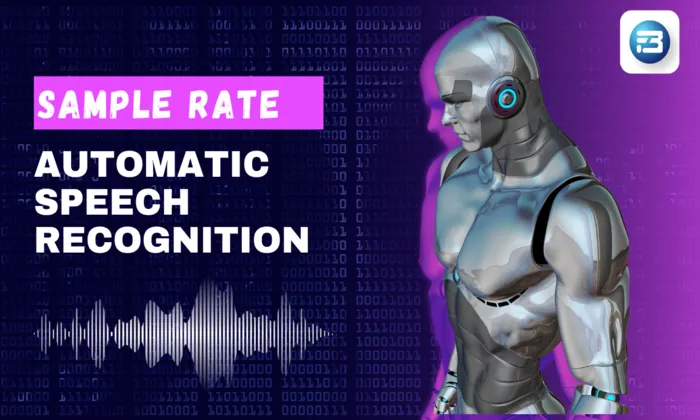What is word confidence score in ASR outputs?
ASR
Speech Recognition
Speech AI
Word confidence scores are an integral part of Automatic Speech Recognition (ASR) systems, providing a measure of how reliably words have been transcribed. These scores are crucial for assessing transcription accuracy, improving model performance, and enhancing user experience. Let's explore what they are, why they matter, and how they function in practical applications.
What Are Word Confidence Scores?
In ASR systems, a word confidence score quantifies the likelihood that a transcribed word is accurate. Typically represented as a decimal between 0 and 1, a higher score indicates greater confidence. For instance, a score of 0.95 suggests high certainty, whereas a score of 0.60 implies potential uncertainty. This metric is pivotal for both developers and users, guiding quality assurance and error correction processes.
Why Do Word Confidence Scores Matter?
Word confidence scores are vital for several reasons:
- Error Detection and Correction: Low-confidence words can be flagged for review, allowing errors to be detected and corrected before they impact the final output. This is especially important in fields like healthcare or legal, where accuracy is paramount.
- Improving ASR Performance: Developers can analyze patterns in low-confidence scores to identify weaknesses in the model, leading to targeted improvements in training data or algorithm adjustments.
- Enhanced User Experience: In voice-activated applications, such as virtual assistants, confidence scores help refine user feedback mechanisms, ensuring interactions are smooth and effective.
How Do Word Confidence Scores Work?
The process of generating word confidence scores involves several key steps:
- Acoustic Modeling: Converts audio signals into phonetic representations, leveraging patterns learned from extensive training datasets.
- Language Modeling: Predicts word sequences based on contextual and grammatical rules, aiding the system in making educated guesses about word recognition.
- Scoring Mechanism: The system combines insights from acoustic and language models to assign a probability-based confidence score to each recognized word.
Key Considerations for Implementing Confidence Scores
When integrating word confidence scores into ASR systems, consider the following:
- Threshold Settings: Establishing an appropriate threshold for acceptable confidence scores is crucial. A threshold that's too high may exclude correct transcriptions, while one that's too low could allow errors.
- Quality of Training Data: The diversity and representativeness of training data directly impact confidence scores. High-quality datasets, like those provided by FutureBeeAI, enhance model reliability and performance.
- Real-Time Processing: Balancing computational efficiency with accuracy is essential, especially in applications requiring real-time processing.
Frequent Pitfalls in Using Confidence Scores
Even experienced teams can encounter challenges with confidence scores:
- Overreliance on Scores: Confidence scores should guide but not solely determine transcription quality. Human review remains essential for context-sensitive accuracy.
- Neglecting Contextual Factors: Failing to account for situational nuances can lead to misinterpretations. Confidence scores must be considered alongside contextual information.
- Ignoring User Feedback: Incorporating user insights is crucial for refining ASR systems. Feedback can reveal patterns that confidence scores alone might miss.
Real-World Impacts & Use Cases
Word confidence scores have practical applications across multiple industries:
- Healthcare: Accurate transcriptions are crucial for patient records, where errors can have serious consequences.
- Customer Service: Ensures accurate logging of customer interactions, improving service quality and client satisfaction.
- Virtual Assistants: Enhances speech recognition accuracy, leading to more seamless user interactions.
FutureBeeAI: Your Partner in High-Quality ASR Data
FutureBeeAI provides diverse, high-quality datasets crucial for training reliable ASR systems. Our expertise in data collection and annotation ensures that your ASR applications benefit from accurate and diverse training data. Whether you require domain-specific datasets or multilingual variants, FutureBeeAI is equipped to deliver data solutions tailored to your needs, enhancing your ASR system's performance and user experience.
Smart FAQs
Q. How can low word confidence scores impact ASR applications?
Low confidence scores can lead to misinterpretations and inaccuracies, particularly in critical applications like healthcare, where incorrect transcriptions could have significant consequences.
Q. What strategies can improve word confidence scores in ASR systems?
Improving training dataset quality, incorporating diverse dialects and accents, and refining models with ongoing evaluation and user feedback can significantly enhance confidence scores and transcription accuracy.
What Else Do People Ask?
Related AI Articles
Browse Matching Datasets
Acquiring high-quality AI datasets has never been easier!!!
Get in touch with our AI data expert now!








